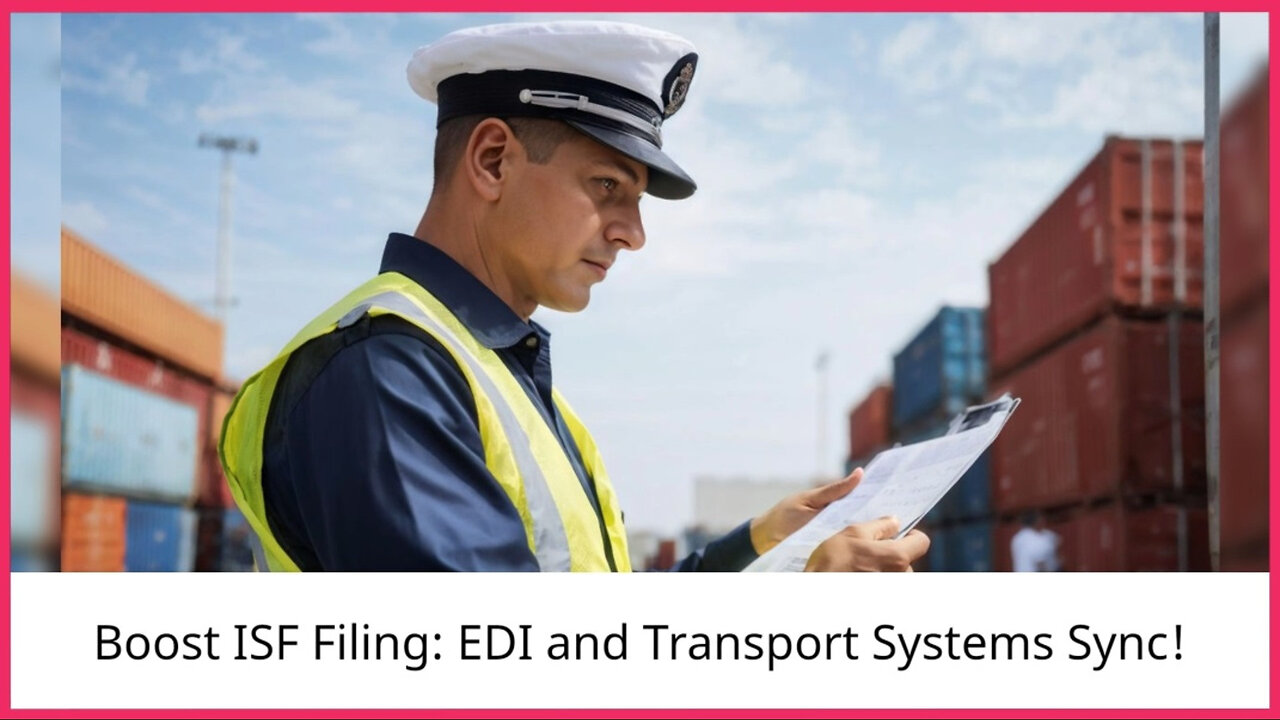Premium Only Content

Efficient ISF Filing: The Power of EDI and TMS Integration!
ISF Checklist || 805-970-7918 || contact@isfchecklist.com || www.isfchecklist.com
This video discusses the integration of Electronic Data Interchange (EDI) with Transportation Management Systems (TMS) for Importer Security Filing (ISF) filing efficiency in customs brokerage operations. ISF, also known as 10+2, is a mandatory filing requirement by Customs and Border Protection (CBP) for ocean shipments entering the United States. EDI enables the exchange of standardized electronic documents between trading partners, while TMS helps manage and optimize transportation and logistics operations. Integrating EDI with TMS offers benefits such as seamless data transfer, automation of the ISF filing process, improved visibility and control over ISF filings, and simplified management of multiple carriers. It is crucial to choose the right EDI provider and TMS platform for successful integration. Overall, integrating EDI with TMS enhances compliance, streamlines operations, and improves the customs brokerage experience.
#usimportbond #isfcustomsbroker #uscustomsclearing #isfentry
Video Disclaimer Here: This video is purely educational and has no ties with the US government.
0:31 - Integration of Electronic Data Interchange (EDI) with Transportation Management Systems (TMS) is crucial for Importer Security Filing (ISF) efficiency.
1:08 - ISF, also known as 10+2, is a mandatory filing requirement by Customs and Border Protection (CBP) for ocean shipments entering the United States.
1:40 - EDI allows the exchange of standardized electronic documents, while TMS helps manage transportation and logistics operations.
-
 2:51:38
2:51:38
TimcastIRL
12 hours agoGovernment SHUTDOWN IMMINENT, Democrats Vow To BLOCK Trump CR w/The Native Patriot | Timcast IRL
197K100 -
 3:38:57
3:38:57
Digital Social Hour
1 day ago $21.06 earnedAndrew Tate EXPOSES the Truth About Legal Battles, Politics & Masculinity | Andrew Tate DSH #1231
75K22 -
 2:26:29
2:26:29
Laura Loomer
12 hours agoEP108: Dems Embrace Domestic Terrorism To "Get Trump"
72.9K36 -
 3:01:51
3:01:51
Right Side Broadcasting Network
14 hours agoWATCH: NASA’s SpaceX Crew-10 Launch
135K46 -
 2:06:17
2:06:17
Glenn Greenwald
13 hours agoJudge Orders Hearing on Columbia Student Deportation Case; Is the Ukraine Ceasefire Plan Serious? Trump Attacks Thomas Massie for His Budget Vote | SYSTEM UPDATE #422
142K199 -
 47:16
47:16
BonginoReport
16 hours agoTrump-Elon Bromance Triggers The Libs (Ep.03) - 03/12/2025
171K307 -
 4:03:41
4:03:41
Barry Cunningham
17 hours agoTRUMP DAILY BRIEFING: PRESIDENT TRUMP PRESS CONFERENCE | DEMOCRATS IN PANIC!
111K98 -
 1:56:30
1:56:30
Melonie Mac
14 hours agoGo Boom Live Ep 40!
64.8K13 -
 1:58:30
1:58:30
Kim Iversen
14 hours agoDOGE, Trump, Aliens and Remote Viewing: A Deep Dive into the Unknown
81.3K85 -
 1:20:08
1:20:08
Redacted News
16 hours agoPutin smells a TRAP as Ukraine agrees to Trump's U.S. ceasefire plan | Redacted w Clayton Morris
190K191